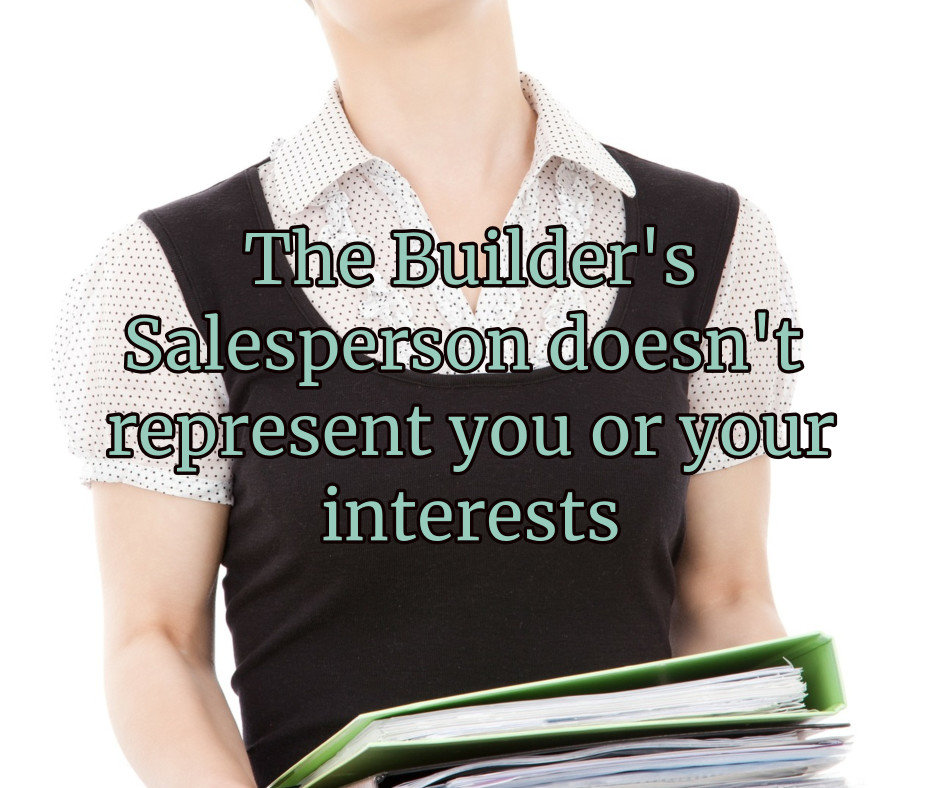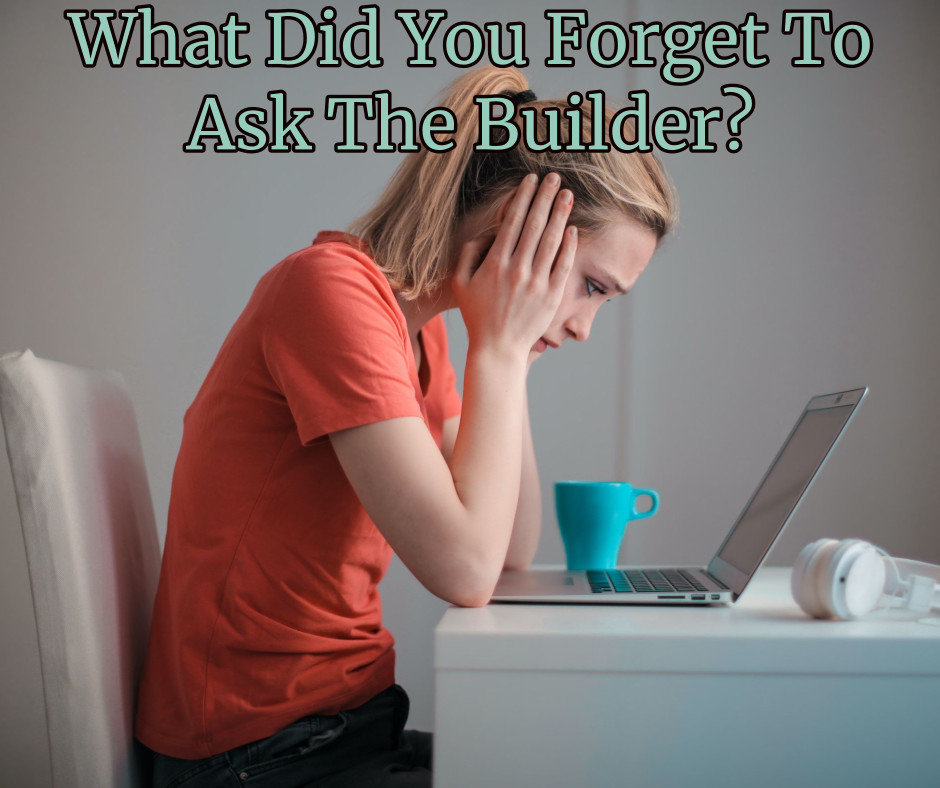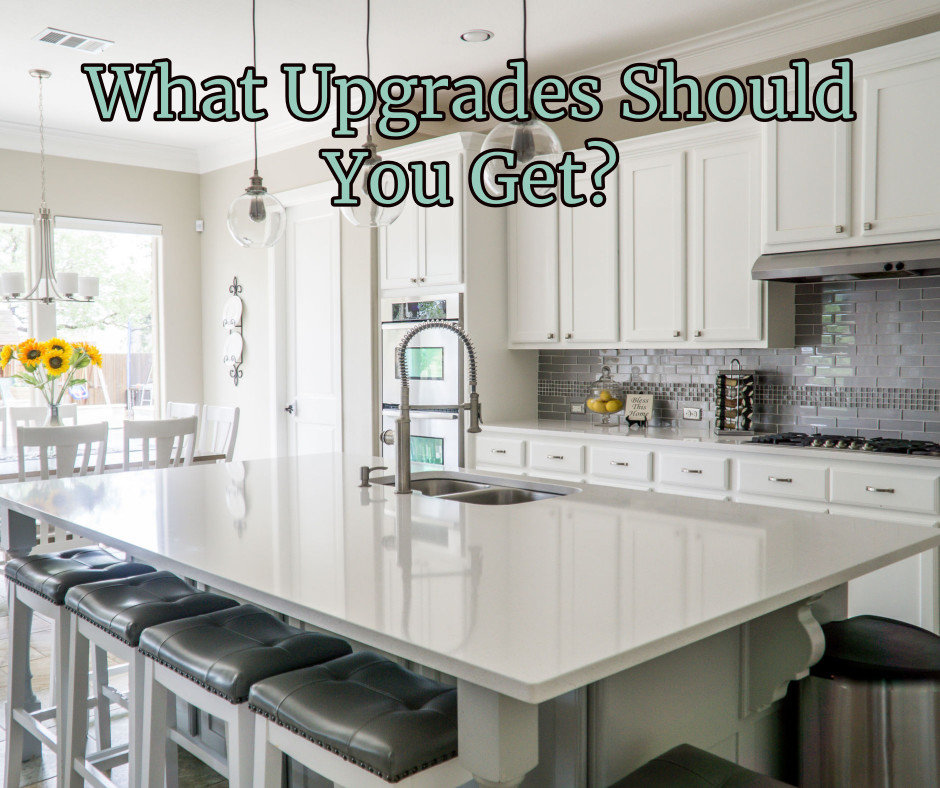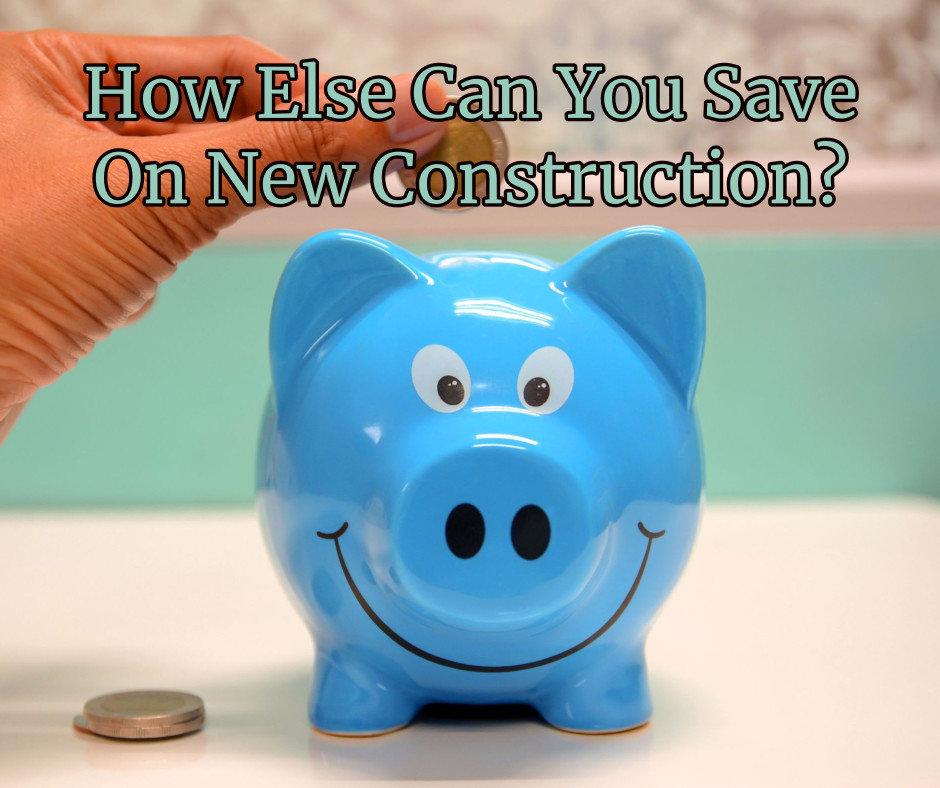how we can help you buy a new home
Do I Need A Realtor If I Build New Construction?
No, you don't. You can buy a new home without a Realtor. So there is not a "need". Just sign the contract and give the builder your money.
But you should want a Realtor if you are building new construction. Especially since the builder is paying for you to have your own Realtor and representation!

Just like you can do your taxes without an accountant. Or take care of your teeth without a dentist. You can do it yourself, but it's worth getting an expert to work on it for you.
It's the same with real estate. The biggest difference being you will pay for your accountant or dental services but you won't pay a dime to use a Realtor to buy a new home! So why not have a longtime new construction expert like Carey & Karrie Frankel help you avoid common new construction home buyer mistakes.
And if a mistake does occur, don't you want someone in your corner to help resolve them?
Many home buyers think a Realtor's only job is to find the home. But that is only the first part of the home buying process. And while it is a very important one, there are many, many steps that your Realtor will guide you through.
Will I save money buying new construction without a Realtor?
 No, you won't save money buying new construction without a Realtor. For the simple reason that a Realtor doesn't cost you anything!
No, you won't save money buying new construction without a Realtor. For the simple reason that a Realtor doesn't cost you anything!
So the price the builder quotes you without a Realtor will not be lower than the price they quote you when you have a Realtor. Or other words, your price quote from the builder will be the same with or without a Realtor. However, with a Realtor, you will end up getting a better deal because they know how to negotiate for you.
The builder's representative you are meeting with represents the builder as the name implies. Their sales bonuses depend on how much you pay and how much you upgrade. So why not have an advocate on your side that doesn't cost you anything and works to get you the best deal possible?
Your Builder's agent does want to make you happy and have a great experience. But they represent the Builder and have a fiduciary responsibility to represent the builder's best interest. Their top priority is the Builder, not you.
However, it's a different game when you have a Realtor with you. Your Builder's agent knows that their "feet are going to be held to the fire" if something isn't correct and they are not upfront with you when your Realtor is there. You know that the builder's agent is going to be on their best behavior by just having your Realtor present. After all, you are just one Buyer. But your Realtor is part of a local board of Realtors and represents every Realtor out there and thus hundreds of thousands of sales. The National Association of Realtors reports that Realtors sell over 70% of all new construction homes. So the Builder wants to maintain their good relations with the Realtor community.
You may be a great negotiator. But when you are dealing for yourself and have your emotions and your spouse's and families emotions involved things change. Attorneys hire attorneys when they have legal issues and need a non-emotional third person point of view and representation. Don't you think it makes sense to hire someone who doesn't have an emotional attachment to negotiate for you? And I am going to say it again ... at no cost to you!
How Much Does A Realtor cost to represent me?
We said it before, but we wanted to make it absolutely clear. The Phyllis Frankel Realty Group Inc doesn't cost you anything or charge you anything when buying new construction. That $0 dollars!
Please note other brokerages have a Buyer's Brokerage Fee can run from $295 to $495. So Yes other Brokers will charge a fee. But not the Phyllis Frankel Realty Group!
What can a Realtor do for me when buying new construction?

- Help you find what you want in your budget
- Offer alternatives from other builders and various resales
- Tell you what is best for appreciation and resale: floorplan, lot & upgrades
- Negotiate on your behalf. While a builder won't often lower their price there is often space for free upgrades or financial incentives.
- Your Realtor will also know what is and what isn't negotiable
- Tell you what the last sales of similar homes sold the builder have sold for. How else will you know if you are being quoted a fair price?
- Make sure everything is in writing
- Explain the contingencies on your contract and how adequately they protect you (since the builder won't let you change the contract).
- Show you the history of discounts given in the neighborhood that are hidden by the price (on neighborhoods that have had at least a dozen sales)
- Ask the questions you didn't know to ask
- Let you know about hidden fees you might not be aware of
- Point out issues in the lots that can affect appreciation (inside versus outer lots, house direction, noise issues, etc.)
- Point out issues in the floorplan that can affect appreciation (which floorplan sell better, what other buyers are looking for now and in the future)
- Guide you through the process
- Help you compare Builder's mortgage deal vs competitors
- Recommend inspectors
- Review your inspection reports to let you know what the builder will typically fix
- Provide home insurance providers with low rates
How do I work with a Realtor when buying new construction?
That's easy. Anytime you come in contact with a Builder's agent you tell them you are working with your Realtor. If you go into a builder without your Realtor and register without your Realtor then Realtor may not be able to help you.
Please be aware that a Builder may require your Realtor to be with you at your initial visit to the builder!
How Do I shop for New Construction?

- Your Realtor will function as your "coach" when you are with your Realtor and meet the Builder's Agent. Your role is to ask questions. Our role as your coach is to ask what you might not have thought of yet and to make sure your questions are fully answered.
- When meeting with the Builder's Agent the first time they will ask you to register with them. This is normal. I will then give them an overview of what you are looking for if I haven't already done it.
- Part of the Builder's presentation will be showing you the site map. This will give you an idea of how big the community is, what most of the lots back up to, where the roads are, where the amenities are, and even where the construction has started in the community. You should then look at the location map and see where the grocery stores, restaurant, highway, airport, and way to work are.
- When you see the model ask what is upgraded and what is standard
- If there are resales in the community then you should consider them. They might have all the upgrades but be at a better price.
- You should find out if there are any special incentives. (Typically there will be if you use the builder's lender and title company)
How do I make an offer on a new construction home?

- The builder has to write the contract. On a resale we, your Realtor, can write it. But not on new construction. The builder can write it with you in the office or they can write it up and email you. It can take them an hour or more to write the contract. So it's often good to go run and get lunch or coffee instead of waiting around.
- The builder will require your driver's license(s) and a deposit check. The deposit check is typically around 10%. (For VA Buyers doing No Money Down we have worked out $1000 with some Builders). We have also worked out with some builders about breaking up the deposit into two payments and sending the deposit to them so many days after signing. It differs by builder.
- The builder does not like to make changes to the contract. Especially, if they are a large scale builder. So please ask any questions to make sure you understand the contract.
- The contract will state the model and the structural upgrades (electrical, plumbing, ceiling heights,etc). It will have an allowance for the interior (flooring, cabinets, countertops, etc.).
- Once you sign the contract it goes to the sales manager. Not the builder's agent we have been working with. We have to wait for their signature for it to be a done deal.
- Once it signed you will be given an appointment for the design center. There you will pick your upgrades, sign an addendum for the upgrades and typically be asked to pay 20%-50% of the upgrades/options.
- Also, once your contract is signed you will need to make an application with the lender.
- After that, any additional deposits will be due.
- And then construction begins with walkthroughs at each milestone of the construction process.
- Once your home is completed you will do an initial walk through where the superintendent will walk you through the home and explain how to use the systems of your home. At the same time, you will make a punch list.
- Before closing, you will have the final walk through to confirm the builder has completed the punch list.
What do new home buyers often forget to ask the builder?

- If you haven't been able to walk through the floorplan you want then you should ask if they have the floorplan elsewhere in the city or state. It might be worth the drive to make sure you like it.
- Who will be in touch with me during the project? This will typically be the builder's agent and the superintendent. You want to know who will be able to answer your specific questions about the status of construction.
- When is the last date I can make changes without an extra charge?
- When can I tour the home during the construction process? (How often?)
- What happens if the home is delayed?
- What has to be paid upfront? At closing?
What to do during the home construction process?
- Builder's have hit the modern age. So they will send you photos updates on each stage of the process.
- As your Realtor, we provide you with an estimated timeline of each stage of the process.
- We keep you aware of loan contingency dates, deposit dates, and other important deadlines.
- Get the home inspected. We do recommend getting an inspection at each stage of construction. But if that is too expensive then it getting one at the walk through can still help find roof shingle, insulation and other issues.
What upgrades can I hold off on due to budget constraints?
 Of course, it's great to build the home with everything you wanted from the start. However, sometimes you run into budget constraints and need to know where to cut some corners. Here are some ideas:
Of course, it's great to build the home with everything you wanted from the start. However, sometimes you run into budget constraints and need to know where to cut some corners. Here are some ideas:
- Lot and floorplan are the most important. Those you can't change afterward so lock in the one you want. Get the better view, the more bedrooms & baths (if appropriate for the neighborhood) and the larger rooms.
- If you can, put in the flooring you want. If not then don't settle. Go with builder grade carpet and you can change it out when you are ready. (Please note even if you plan to change flooring right after closing the builder won't leave the floors bare. Due to building codes, they have to put down flooring).
- Go for the extra wiring for more can lights and plugs. Pay attention to the Kitchen and Master Bath lighting. Skip the upgraded light fixtures which you can do later & usually at a cheaper rate.
- Skip the molding if it is breaking the bank. You can always do it afterwards.
- Don't upgrade the knobs and pulls unless you are in love. Builder's might not have an extensive selection. So you can do it later with something you love.
- That being said the Kitchen is the first place you want to put extra money. Better cabinets, countertops and appliances. Quiet dishwashers and gas appliances are a plus.
- Don't forget to save money for appliances and window treatments. They don't always come with the home and they add up!
What else should I consider while designing my home?
- Be careful if your taste is not common. Nothing wrong with making your house yours. And most people will stay in their house for over a decade. So make sure you love it. But it cheaper to repaint a wall then replace one of kind flooring that only you love.
What are the advantages of buying a new home versus resale?
- Besides designing your home exactly the way you want it; your home will typically come with a 1 year warranty for anything and a 10 year structural warranty. And of course, you will have all the manufacturer warranties on the appliances and systems.
- It's new! You hopefully won't be thinking of remodeling for at least a decade.
What are the disadvantages of buying a new home versus resale?

- New homes are often more expensive than a resale.
- New homes often don't come with refrigerators, washers, dryers or blinds. So this is an extra expense.
- After 5 years you would expect most homes to show any defects that they have. On a new home, you don't know until the problem has time to fester (ie roof leak, drainage issue, etc).
- If it is a new floorplan that you haven't walk through then there may be doors that open into each other or light switches located out of the way. You might not be able to tell without walking through the floorplan.
How else can I save when buying a new construction home?

Besides using a Realtor, you will get your best deal when buying a "spec" home. These are homes the builder is building without a buyer in mind. They typically use their most popular floorplan and typical upgrades. The builder will typically price these spec homes below the cost of building the same home with the same extras on a similar lot.
Another bonus is that these homes have started and so you have a good idea of their completion date and can work around it. The completion date could be anywhere from 5-6 months out to ready today!
The builder isn't emotional attached to the homes. It's a business and they watch their bottom line. So if they have inventory which hasn't sold for 60 days or more then they may be more willing to negotiate on it.
One last thought is that builders will often be more negotiable toward the end of the quarter or year end for their corporation if it is one of the big builders. They are publicly traded and want their bottom line to impress their shareholders.
Have a new construction question? Need assistance in looking at new and resales homes? Please let us know:

Leave A Comment